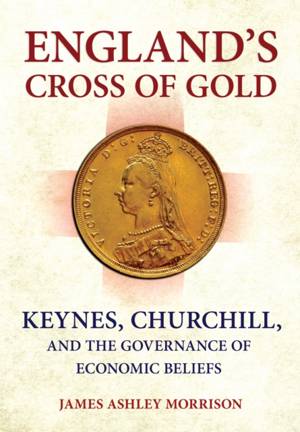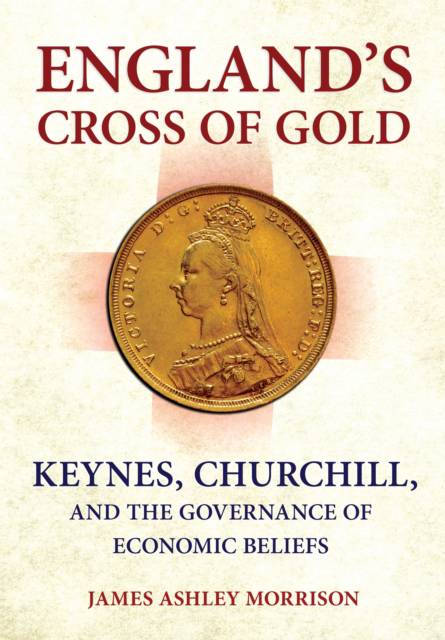
- Afhalen na 1 uur in een winkel met voorraad
- Gratis thuislevering in België vanaf € 30
- Ruim aanbod met 7 miljoen producten
- Afhalen na 1 uur in een winkel met voorraad
- Gratis thuislevering in België vanaf € 30
- Ruim aanbod met 7 miljoen producten
Omschrijving
In England's Cross of Gold, James Ashley Morrison challenges the conventional view that the UK's ruinous return to gold in 1925 was inevitable. Instead, he offers a new perspective on the struggles among elites in London to define and redefine the gold standard--from the first discussions during the Great War; through the titanic ideological clash between Winston Churchill and John Maynard Keynes; to the final, ill-fated implementation of the "new gold standard."
Following World War I, Churchill promised to restore the ancient English gold standard--and thus Britain's greatness. Keynes portended that this would prove to be one of the most momentous--and ill-advised--decisions in financial history. From the vicious peace settlement at Versailles to the Great Depression, the gold standard was central to the worst disasters of the time. Economically, Churchill's move exacerbated the difficulties of repairing economies shattered by war. Politically, it set countries at odds as each endeavored to amass gold, sowing the seeds of further strife.
England's Cross of Gold, grounded in masterful archival research, reveals that these events turned crucially on the beliefs of a handful of pivotal policymakers. It recasts the legends of Churchill, Keynes, and their collision, and it shows that the gold standard itself was a metaphysical abstraction rooted more in mythology than material reality.
Specificaties
Betrokkenen
- Auteur(s):
- Uitgeverij:
Inhoud
- Aantal bladzijden:
- 402
- Taal:
- Engels
- Reeks:
Eigenschappen
- Productcode (EAN):
- 9781501758423
- Verschijningsdatum:
- 15/09/2021
- Uitvoering:
- Hardcover
- Formaat:
- Genaaid
- Afmetingen:
- 152 mm x 229 mm
- Gewicht:
- 743 g

Alleen bij Standaard Boekhandel
Beoordelingen
We publiceren alleen reviews die voldoen aan de voorwaarden voor reviews. Bekijk onze voorwaarden voor reviews.











